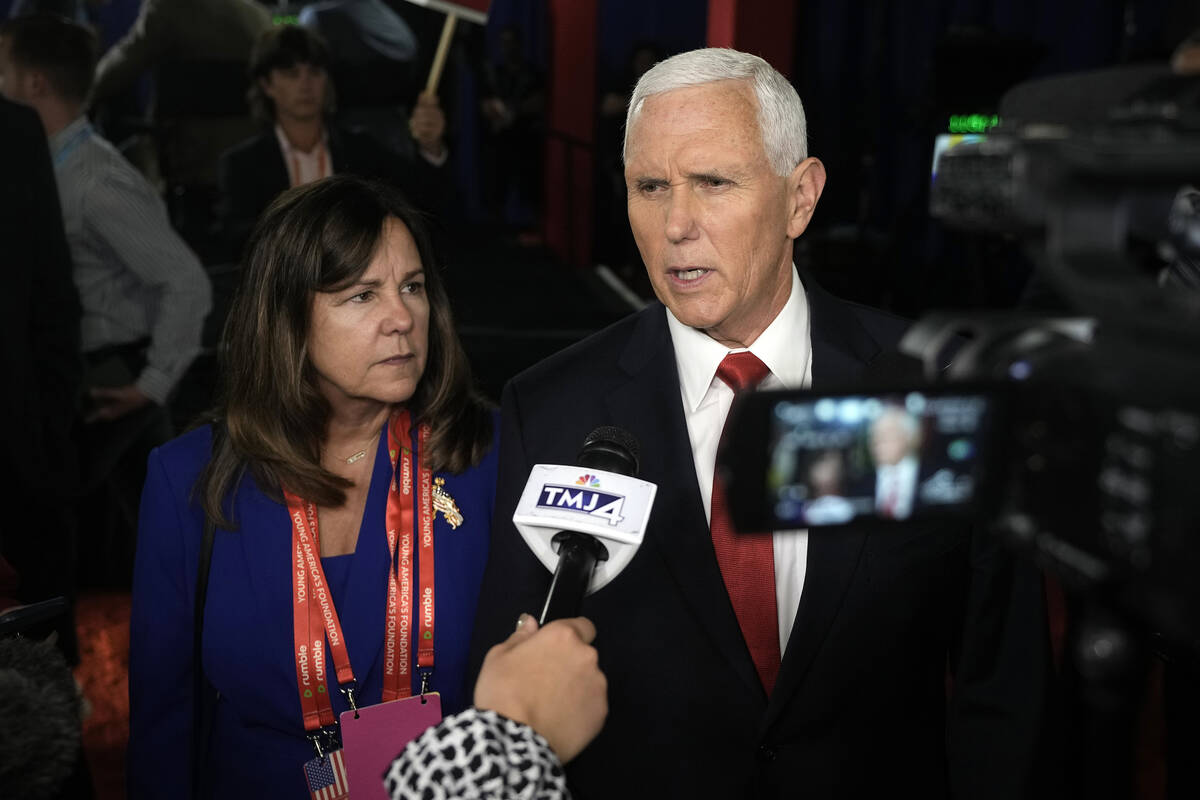JONAH GOLDBERG: Mike Pence is railing against populism among Republicans
Last week Mike Pence gave a speech at Saint Anselm College that, depending on your view of the man, was either courageous or desperate — or both.
Titled “Populism vs. Conservatism: Republicans’ Time for Choosing,” the speech was an homage to his hero, Ronald Reagan, who in 1964 gave a nationally televised address, “A Time for Choosing,” on behalf of Republican presidential candidate Sen. Barry Goldwater. That hopeful and optimistic primer on modern conservatism marked the beginning of the Gipper’s rise as the political leader of the American conservative movement.
Pence earned a lot of “amens” from me as someone who’s been railing for years against the corrupting influence of populism on the right. “Today,” Pence said, “a populist movement is rising in the Republican Party. This growing faction would substitute our faith in limited government and traditional values for an agenda stitched together by little else than personal grievances and performative outrage.”
I couldn’t agree more, except for one thing: That movement isn’t “rising.” That movement is risen.
Elsewhere, Pence describes populism as an “ideology” akin to progressivism. While there’s a robust academic debate about populism’s definition, I think Pence’s description of a politics of “personal grievances and performative outrage” — neither of which constitute an ideology — offers a better definition.
Defenders insist populism is merely a “rhetorical style” that valorizes “the people” or — in some variants — “the producers,” i.e., the “little guy” crushed under the heel of the state or big business. Critics of populism — such as me — argue that populism is best understood as the exploitation or cultivation of anger and fear among a subset of the public. In “What is Populism?” Jan-Werner Muller, a politics professor at Princeton, describes populism as a form of identity politics and a “degraded form of democracy that promises to make good on democracy’s highest ideals (‘Let the people rule!’).”
That’s populism’s gimmick. It claims the small-d democratic language of “we the people” but usually defines “we the people” not as all Americans but a privileged political or cultural identity. As Trump once put it, “the only important thing is the unification of the people — because the other people don’t mean anything.”
Populism’s biggest drivers are upstream of politics. Fueled by everything from educational fads about self-esteem, victimization and entitlement to widespread distrust in institutions and an epidemic of conspiratorialism, all amplified by social media and traditional media alike. America has been a petri dish for the populist bacillus for years.
Democracy is the expression of contested political preferences through orderly elections and responsible republican institutions. Conservatism is a body of principles that, as Pence explained, are more enduring than “passing public opinion.” Populism, taken to its extreme, is public opinion in the form of mob passion. And mobs see any impediment to their will as illegitimate.
All populisms are anti-elitist, but historically, what distinguished left-wing and right-wing populism was which elite they were angry at. Left-populists aim their rage at Big Money, banks and railroads (and, occasionally, Jews). Populists on the right rail at Big Government and other bureaucratic elite institutions — foundations, universities, etc. — that keep “the people” down (Jews sometimes pop-up in their demonology, too). Occupy Wall Street was left-wing populism; the tea parties, right wing. But as the demonization of Big Tech suggests, there’s ample overlap.
A little populism can be healthy. Anger at perceived injustice — by Wall Street or Washington — can fuel civic participation and illuminate legitimate grievances. But unalloyed populism is the politics of demagoguery or rabble-rousing. Mark Antony waving Caesar’s bloody toga to incite the mob is the performance of a populist demagogue.
Trump’s incessant incitement of his followers’ outrage on his behalf is the modern equivalent.
Pence is right about populism’s threat, but his political problem is that he comes so very late to the game.
Pence campaigns as a Reagan conservative who was “proud to serve” in the Trump administration, right up until it tried to subvert the Constitution on Jan. 6. Pence rode the populist Trump train while it served his purposes. He deserves praise for refusing to make that train a battering ram and for, however, belatedly bearing witness to the party’s plight.
But before his disembarkation, vast swaths of the right — from CPAC and the Heritage Foundation to most conservative media — surrendered to populism. I certainly hope Pence succeeds in getting Republicans to reverse course. But a better time for choosing was when the Trump train was still in the station.
Jonah Goldberg is editor-in-chief of The Dispatch and the host of The Remnant podcast. His X handle is @JonahDispatch.

















